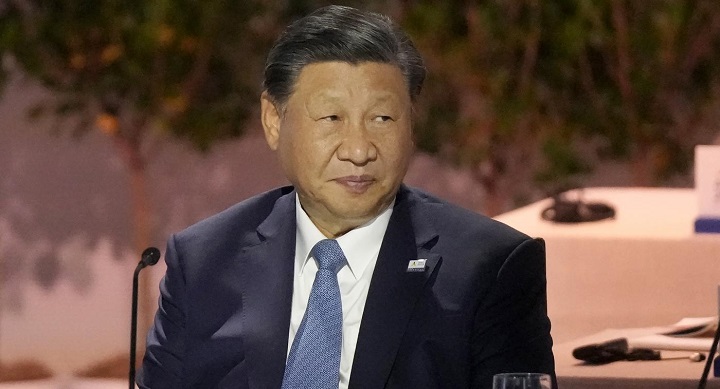
In a recent report,[1] Chinese President Xi Jinping recommended studying the influence of international law on Chinese internal and external affairs. Professor Huang Huikang presented an extensive report on the subject.[2]
Xi underlined the importance of international law:
«Strengthening the rule of law about foreign affairs is a top priority in responding to the challenges posed by external risks. Therefore, it is necessary to actively cultivate several first-class international arbitration institutions and law firms, establish and strengthen the “rule of law security chain for the protection of overseas interests”, and take the initiative to participate in international rule-making.
Xi also said that a group of foreign-related rule of law talents should be trained as soon as possible who “have a firm political stance, excellent professional qualities, are well versed in international rules, and are well versed in foreign-related legal practice”».
According to Xi, strengthening the rule of law concerning foreign affairs is not only a long-term necessity for comprehensively advancing «the construction of a strong nation and the great cause of national rejuvenation» through «Chinese-style modernization» but also a critical factor in promoting high-level openness to the outside world and coping with «external problems», he said. It is also an urgent task to encourage a high opening to the outside world and to cope with ‘external risk challenges
Many will pore over the report, dissecting it as it will significantly impact future Chinese international interactions. Moritz Rudolph[3] was the first to start working on it.
Indeed, the first goal of this new focus is for China to have an acceptable legal framework to justify its territorial and political claims. Many disputes with the US and neighboring countries are about China’s perceived expansion, and the friction with them is about the Chinese right to the claims. Therefore, before it becomes a military and political confrontation, it is a legal one. The flesh and bone may be political and military, but the skin is legal – and only superficials don’t look at appearances. For Beijing, it is existential to understand the legal framework where its competitors play out.
Admitting this legal framework and the importance of engaging foreigners in it is a significant breakthrough for China’s politics. De facto means that China accepts the international legal framework and its domestic impact, which the People’s Republic of China had not done before.
China has undoubtedly worked within the present international legal framework, but no other leader stressed that it was essential to study it to protect the country. Past administrations were unresponsive, accepting the framework when it fit them and forfeiting when it didn’t without much legal or philosophical elaboration and justification.
Past Chinese leaders ruled through utterances (Mao) or murky divisions of political power and market forces (Deng).[4] It didn’t significantly impact China’s international position because it was isolated from it (with Mao) or benevolently accepted (with Deng). In either case, China didn’t consciously understand the existing international order and its norms.
But presently, China is no longer isolated, and its position sometimes clashes with the existing international order. Therefore, either China challenges the present order altogether and moves toward new isolation, or it tries to carve its own space in this order. Then, it must fully understand it and thus consciously live in it.
Like it or not, according to the recent report, Beijing decided to recognize the international order based on the existing rule of law and its impact on everything in China. The recognition then acknowledges something that was also there before but wasn’t admitted- the limits of the Communist Party’s total power, which both Mao and Deng agreed upon. The acknowledgment is a theoretical breakthrough and will meet much practical resistance in its domestic implementation. But it could also have significant consequences.
The 2018 Chinese agreement with the Holy See was similarly preceded by theoretical breakthroughs that led to Party Secretary Hu Jintao’s 2007 party congress speech recognizing the positive role of «religious figures» in Chinese social life.
The party around that time recognized it was materialist; thus, religious matters were out of its confines, and only civil consequences of religious activities were its concern. That translated into acknowledging that the appointment of Catholic bishops was a religious issue, although it had civil consequences. The sacred was the Pope’s competence, the Chinese government’s, civil. It was the first time in Chinese history that a fully independent China acknowledged the role of foreign religious “interference” within its borders.
Similarly here. If the party recognizes the importance and influence of laws in its rule and encourages its study, it acknowledges in principle that the party is under the law, not above it. This will not have practical effects tomorrow, and the conference’s goal is to limit and try to channel this so that the party can still control the situation.
Indeed, the China-Vatican agreement has been disappointing, according to many, and Xi’s encouragement to study law won’t open the floodgates of China’s new rule of law. But at this stage, it is the seed of something. It admits that there is a rule-based international system to which China must adapt. It can try to push for some rules or tamper with it, but it can’t ignore it. The cost would be its isolation or a conflict hard to justify abroad and domestically.
If the move had occurred 20 years ago, it would have been likely welcomed with enthusiasm globally. In the present international climate, it is likely to be met with great skepticism. It may be considered too little, very late. Still, something is moving in China at the time of a precious «ceasefire» agreed between Xi and US president Joe Biden in San Francisco last month.
[1] See here. The news came out on November 29, 2023.
[2] https://news.cupl.edu.cn/info/1016/38597.htm
[3] https://x.com/MoritzRudolf/status/1730347140193362231?s=20
[4] See http://www.settimananews.it/informazione-internazionale/xi-jinping-de-structuring-power/





